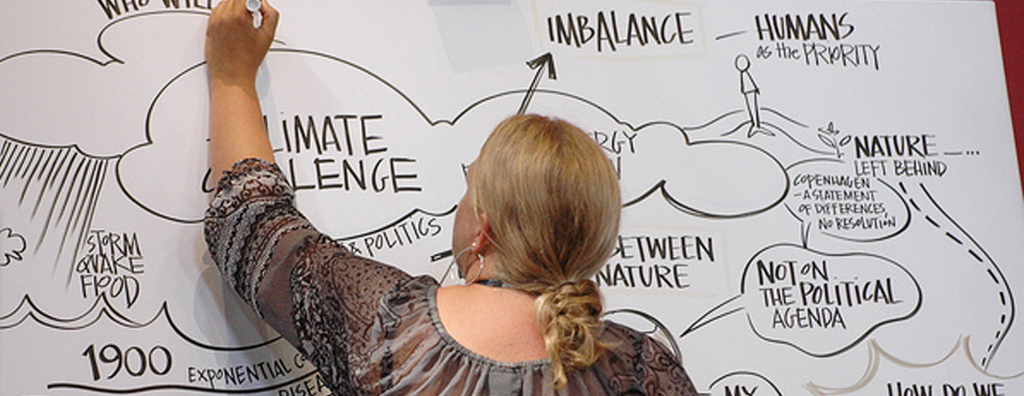
How Pain Keeps us from Acting on Climate Change
In my daily work, I read a lot of online articles about climate change—both the science and the politics—and out of curiosity I’m invariably drawn to the comments section at the end of the page (first rule of the internet—never read the comments!). What I’ve observed is that these comments tend more often than not to be variations on one of the following themes:
- Climate change isn’t happening, we are only experiencing the earth’s natural cycles
- Climate change isn’t happening, it is a hoax perpetrated by the greedy
- Climate change is a scientific fact which demands action
- Climate change is a moral imperative which demands action
- Climate might be changing, but there is nothing we as humans can do about it
Though radically different, I think each of these arguments can be traced to a single origin: avoidance of emotional pain. This is completely understandable; after all, if climate change isn’t happening, or is the result of something beyond our control, or we are powerless to stop it, there is no need to feel the pain any normal human would feel in the presence of a life-threatening problem that they helped to cause. Rationalizing, by placing scientific or moral blame on others, also alleviates some of our own deep-seated fears about how our own actions might contribute to the problem.
Avoiding pain can be a pretty strong motivator. It is for this same reason that arguments which pit the environment against economic progress can be so effective. If acting on climate change means destroying everyone’s wealth, its little wonder that so few legislators are willing to take the lead. But “environment vs. economy” is a deceptive argument for a few reasons.
- We now know that the environment and the economy are not at odds. Plenty of “environmental” programs, from regulation of chemicals that destroy the ozone layer to California’s current cap and trade system, have been implemented without hampering economic growth.
- Climate change actually crosses the line from an environmental problem to an economic and social issue. The cost of inaction would actually be far more detrimental to our economy (and our livelihoods) than any single environmental program could ever be.
- Emotional pain is relative. Since our economy is based on a short-term return model which tends to exacerbate existing environmental and social problems, there is arguably an equal, if not greater, amount of collective pain associated with maintaining the economic status quo than with fixing the environment.
The belief that climate change is a painful problem that will require painful solutions indicates two things. First, the climate movement hasn’t done a good enough job at framing climate solutions as opportunities rather than losses—which is a shame, because climate solutions are, by and large, opportunities. Climate change is one of those once-in-a-lifetime, all-hands-on-deck problems that can only be solved through a combination of relentless optimism, innovation and community pride—DelAgua’s work on clean cookstoves in Rwanda is a great example. Second, organizations that have sown doubt about scientific consensus on climate change or positioned the problem as environment vs. economy have done their jobs very well indeed.
So how do we let go of the uncomfortable emotions associated with climate change? To me, the most heartening example of a way forward comes from the Yale Project on Climate Change Communication, which just released a new study of Americans’ climate change views, nicely summarized at Vox.com.
There are a lot of paradoxical findings here. The majority of Americans believe climate change is happening, but do not believe humans are the cause. They don’t think there is scientific consensus on climate change, nor do they think their own lives will be greatly impacted—though they do believe climate change will hurt future generations. They don’t support a carbon tax, but do support limits on CO2 emissions and greater renewable energy infrastructure.
The reason to be optimistic about such seemingly paradoxical results is they prove that only certain aspects of taking action on climate change trigger that emotional pain response, and that the desire to take actions that would curb climate change is not necessarily tied directly to climate change itself. You don’t need to “believe” in climate change to want to limit CO2 pollution, and you don’t need to know anything about CO2 pollution to wish your energy came from a wind turbine rather than an oil field.
When it comes to climate change, the cycle of pain and blame we’ve all been caught in is counterproductive. The majority of Americans share the same vision: a world with clean air and sustainable energy. Rather than being a source of pain, this vision can be a source of pride. Let’s start harnessing that pride—along with human ingenuity—to create the future we all really want. One of the best places to start might just be the comment section.